Morality and ethics in human psychology is complex but easily categorized.
Morality has a number of elements but consists of: One choice, two paths, three groups, four kinds of people, five degrees, and numerous factions.
You have one choice in life – to help people or to hurt people. You will choose one of the two as your path in life. That doesn’t mean that defending yourself is choosing to hurt others. Nor does it mean that it is right to hurt those who do not stand with you.
The three groups consist of those who are morally righteous, those who are learning morality, and those who reject morality. Considering how many choices are possible, each subject must be taken separately. No one will be 100% morally righteous and no one will be 100% immorally wicked. Good people can choose wrong and bad people can choose right.
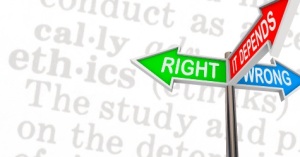
Using animal totems as a means of depiction, the four kinds of people are:
- Lions – at the top of the food chain feeding off others: government
- Jackals – scavengers feeding off scraps and the weak: criminals
- Cows – average civilians
- Bulls – protectors of the weak
Each has their own world view;
- The lions are kings, dictators, and tyrants with their servants to whom the people are chattel on whom they feed. They see themselves as rulers at the top of the food chain, which is why they see lions as “noble.” Socialists, Islamists, and autocrats of any kind want a population of drones, not a population of free thinkers who will question them. They don’t see themselves as scavengers with great power, which is what they actually are because they kill and eat the weak first. They and their followers comprise the Left wing that justify themselves by the motto “might makes right.” Malevolent rulers will make use of the jackals to clean up their scraps and keep the cows cowed. The most vicious in history would be Mohammad and Islamists, Genghis Khan and the Mongols, Tamerlane, Mao Tse Tung and Stalin’s Communists, and Hitler’s Nazis who account for billions of people killed or enslaved. In America the likes of Pres. Wilson and Obama are the worst of aspiring dictators who abused their power to steal the nation’s wealth.

- The jackals are scavengers who prey on the weak. They are criminals who see people as hammers and nails. You either take or get taken. They live their lives under the philosophy of ‘do unto others before they do unto you.’ Scavengers exist on all levels of society and can be rich or poor. They can be small street thugs or white collar embezzlers. Some band together like Capone and the Mafia to take down larger animals. Some are so ruthless and become so powerful like Rockefeller they can seize power from the lions to replace them. To a thief, getting rich is only a matter of your success in how much you can take from others by hook or by crook. They prey on the unwary, the naïve, and the weak. This is the far Left. Once they attain power they strive to keep others from attaining any to protect their territory and, as the new lions, feed off the masses.

- The cow sees the world as wolves and sheep. People are either good and decent sheep or they are trying to take away their freedom, make them slaves, and devour them. It doesn’t matter if someone kills in self-defense or commits murder, they are all killers and all evil. They see both police and criminals as wolves, which is why they don’t understand police as protectors. They are the weak who need protection, but are generally used by the powerful. Some of the cows will support the lions in hopes they will protect them from the jackals, and pray they won’t be his next meal. They don’t want to harm anyone, but to live their lives in peace. This is the Right.
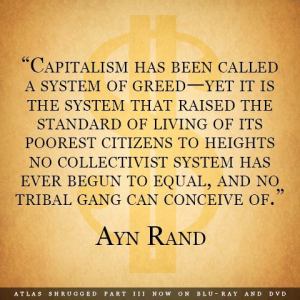
- The bull sees people as wolves, sheep, and themselves as sheepdogs. They are the leaders of a republic and the soldiers, police, and firemen of a republic’s military. Bulls are shepherds of the flock who fend off the wolves. They are the benevolent leaders and protectors of the people who don’t feed on them, but advance the welfare of the herd. In Team America parlance they are dicks; assholes fear them while pussies resent them. They are the truly noble warriors who live by the code; warriors prey on the strong, criminals prey on the weak. This is the far Right who believe that leaders should use “might for” There are few great examples from history aside from the mythological King Arthur about whom little is heard because they didn’t set out conquering others but defended their kingdoms from conquerors. The best examples of Americans are presidents like George Washington along with his fellow Republicans on Mount Rushmore, plus Ronald Reagan. Benevolent rulers from history who protected their people rather than subjugated them are rare as most of the time the more vicious lion types take power.

The Battle at Kruger – nature’s example of lions and bulls
“An armed man is a citizen, an unarmed man is a subject.”
The five degrees of morality is easy to determine by a simple test;
You find an unconscious man lying helpless by the road. Do you hurt him by taking his wallet or help him by calling an ambulance? The morally ambiguous choice is to do neither or both.
The fourth and fifth choices are those who are truly morally righteous or dedicated to evil. The morally righteous will take him to the hospital rather than calling for someone else to do so. The truly wicked will finish him off and take everything.
(As a former paramedic I am well acquainted with those who choose right, but are not truly righteous. I can’t count the number of times our ambulance was called to take someone to the hospital for a cut finger or migraine headache.)
The occurrences of the five in humanity are pretty much relative to the Standard Distribution Curve. But the fact is everyone is born morally ignorant and must be taught. The degree to which that teaching takes in a person is dependent on their personality – whether they have a good heart or a black heart. Moral lessons people learn in life are filtered to good or evil by the nature of their soul more than by their experience (nature vs. nurture). Nature will teach prejudice, but it is nurture that develops bigotry.
One of the worst things to do in life is to judge someone without all the facts. Just because someone belongs to a particular group does not mean their share the traits of that group. That is prejudice.
Worse is bigotry wherein a person is judged to be part of a group despite all evidence to the contrary like leftists damning the TEA Party as racists. That is not to say someone cannot be fooled, that someone can pretend or be impugned by others to be what they are not, but to condemn someone based on the actions of others in any group is always wrong. To purposely deceive others concerning a third party as is done to the TEA Party is evil.
Intelligence, morality, and ego comprise character. Righteousness is composed of what is right, just, and moral, not what is good, fair, and easy. Everyone is born in ignorance and bred on morality because people inherently believe in being good and helping each other, but some find it too easy to hurt others in the name of what they want as good and fair.
Just because something is good does not make it right. Just because something seems fair does not make it just. Following what is morally righteous is not easy. This is the fundamental difference between growing up staying a leftist or maturing in the education of morality to become righteous.
Righteousness – God’s Love vs. self love
Young Liberal Wisdom: II – The Left is never right
You have one choice in life – to help people or to hurt people
Christianity under assault in America and around the world
Related articles;
Leftist’s list of “most benevolent” monarchs loaded with worst tyrants
This leftist list is at the top of Google Search includes some of the world’s worst and most murderous tyrants, such as Mao Tse Tung who murdered a hundred million Chinese to force obedience and conformity, and Mohammad who made a religion of brainwashing slaves.
Democrats live and love the Big Lie and laugh at congressional crimes
The government we can only hope for – Team America
Other articles;
Climate change deniers vs. Chicken Littles
Foreign policy successes on the road to naming Obama Grand Mufti
The Final Solution to Islamic terrorism
Proof of fraud – the Democrat agenda to tax American wealth
Racism – the colossal ignorance of the Left’s language of division
(Please like, follow, and share this with your friends. Let them know the truth.)
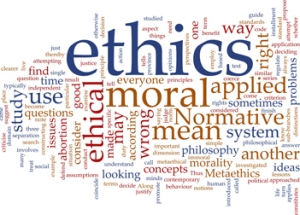
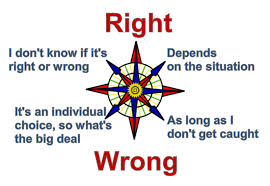
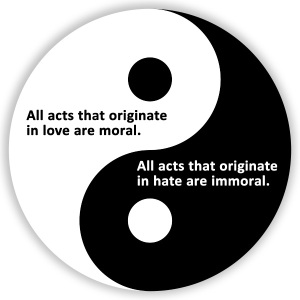
A conversation on FB:
John Steele · Top Commenter · Miami, Florida
Does church attendance really measure Christianity in your mind, because it doesn’t in mine? Isn’t it sufficient that an overwhelming majority of America, Barack Obama and his”we’re not Christian” jackassery notwithstanding, believe and hopefully practice, these beliefs even if they never get near a church. Frankly I like to think that God doesn’t care if I go to Mass as long as I behave the way he raised me.
Reply · Like · 3 · 4 hours ago
David Provost · Top Commenter · Community College of the AirForce
Not forsaking the assembling of ourselves together, as the manner of some is; but exhorting one another: and so much the more, as ye see the day approaching. – Hebrews 10:25
Reply · Like · 3 hours ago
Michael Gurbach · Top Commenter · University of Alabama
I know lots of people that don’t go to church and they lie, steal, drink, do drugs, fornicate, commit adultery, etc. and say they believe and are christians. Heck, a lot of church folk do those things. Up in the club on Saturday night and sittin’ in church on Sunday morning.
Reply · Like · 2 · 3 hours ago
Gary Sheldon · Top Commenter · Community College of the Air Force
John Steele As do I… Brick, cement and wood do not hold God in. Look and he is There.
Reply · Like · 2 · Follow Post · 2 hours ago
David Provost · Top Commenter · Community College of the AirForce
Michael Gurbach yes, they are not “Christians”.. as I have posted earlier… If you believe in Christ and follow “ALL” he has commanded you are Christian and a “SAINT” according to Jesus Christ. No such thing as canonization in the bible…CANONIZE
transitive verb : to declare (a deceased person) an officially recognized saint
Reply · Like · Follow Post · about an hour ago
Dusty Koellhoffer · Top Commenter · University of Georgia · 121 followers
Well, David, I have to hope you’re wrong because I haven’t met anyone who says they are Christian who leads a sinless life even after accepting Christ as their Savior. If anyone could then they wouldn’t need Jesus now would they?
Reply · Like · Unfollow Post · 2 seconds ago
David Provost · Top Commenter · Community College of the AirForce
Dusty, I am not, and yes we all sin. But, God is forgiving.
Reply · Like · Follow Post · 6 hours ago
Dusty Koellhoffer · Top Commenter · University of Georgia · 122 followers
While I believe that about half of those who attend church do so for reasons other than being Christian – being children of Christian parents yet to come to Christ, friends, seekers, and also networkers and pretenders – I also know that just because someone accepts Christ as their Savior and then sins again does not mean they are not or no longer Christian because everyone, no matter how good their intentions, does sin again. We are only human and the only way we get to Heaven is through Jesus Christ. I recognize there is a vast gulf between committing a sin, breaking a Commandment, and committing a crime, but we were told not to judge others, and that doesn’t mean don’t judge whether or not they do right or wrong, but not to judge if they will go to Heaven because we are not God. The only “unforgivable sin” Jesus ever spoke of was “blaspheming the Holy Spirit.” The only way I believe people actually do that is by rejecting the Holy Spirit. Just saying, unless someone is proven to be a deceiver, judging them not to be Christian because they sin is not what Jesus said.
Reply · Like · Unfollow Post · 2 seconds ago
David Provost · Top Commenter · Community College of the AirForce
Dusty, forgive me if I do not reply to every point, it was pretty long. You are correct in a few points. There is an unforgivable sin… But that does not mean we have an open door policy for all sin. God can remove the spirit he gave you if you know the law and turn from it. You can also loose your salvation by committing sin on purpose. But those truths need to be known… 1st and foremost, people need to hear the truth to be judged by it. Everyone outside His church “Church of God” and to make sure you understand, His church is not a building. But we shall judge those inside His church. There is a difference between judging a sin and judging the person committing it. You were right about judging if a person will go to heaven or not. Do you know that if I were to tell a person “you will go to hell” God can save them just to spite me.. I pray I dont judge anyone. I will let them know if what they believe and or are being taught is wrong and that it can lead them to damnation. I know God wants all men to be saved. But He tells us the criteria required to get to heaven as well as what not to do. I have been a member of the “Church of God” for 5 years now.. My beliefs prior were as most modern day “christians”, church services on sunday morning , sing, pray, topic, pass the plate, sing, pray, go home. All in about 1.5 hours. But questions plagued my mind and no one knew the answers.. Not biblical answers.. Now, I have been given every answer to every question I’ve ever had.. Not to say I don’t come up with a new one once in awhile.. But I can always ask and get a biblical answer.
Reply · Like · Unfollow Post · 4 minutes ago
Dusty Koellhoffer · Top Commenter · University of Georgia · 114 followers
Thanks, David, that was enough. Speaking for myself, I can only hope you are wrong on one point; that God would take away the Spirit once It has been accepted. God already knows we have sinned and will sin again. I know I fail to keep from sin every single day and have every day of my life.
Not a day goes by I don’t think or do something wrong. And there’s not a day goes by I don’t see everyone I know who says they are Christian do the same. I still fight with my wife over ego and mistakes in judgment, and get angry on the road, and lust when I see a beautiful woman. And don’t say that actions are the only sin because Jesus did say that “lusting in your heart is the same as committing adultery.”
While there are those who never receive the Spirit (the seeds that wither amidst the thorns) I don’t believe God will rescind His Gift. Once the seed takes, whether it grows small or large, gets rained out or goes through drought, it is still there and the Spirit is alive in that person. Too many times are Christians beaten down by Satan, and it doesn’t mean God takes back the Spirit.
So, like I say, I hope you are wrong wrong and that God would never take away the Spirit because He already knew what I will do for the rest of my life before I accepted It. After all, it’s not like He said this is a Gift He would take back. Clearly, it’s not a license to sin, but we are, after all, only human and imperfect.
Reply · Like · Unfollow Post · 2 seconds ago
LikeLike
The Morality Cycle
There is a widespread assumption that morality is essentially fostered in human beings at an intrinsic level. According to one such view, our individual characters and personalities, and even our moral compass, have been engendered in us through our genetic inheritance, our DNA. As the BBC Horizon documentary, Are You Good or Evil? (last screened on 12 February 2012) appeared to show in a behavioural study of infants, morality is at least to some extent a quality intrinsically embedded in us at birth and through our lineage.
But how does this innate awareness of morality in us at a young age develop as we grow up and manifest itself first in later childhood and then in adults. Is the growth and development of morality simply and exclusively an internal process or is it more likely a result of external behavioural influences such as our interaction with other people in society – most obviously with our parents.
The initial basic examples of moral understanding in those early infancy years would seem to grow and develop almost entirely from the experience of modelling – of watching and copying the behaviour of other individuals in society.
The following four examples may illustrate this:
(1) We may see people throwing litter on the ground – or just see evidence of rubbish having been deposed of carelessly – and subsequently copy that behaviour with the rationale: ‘If everyone else doesn’t seem to care where they put their rubbish, why should I spend extra time and effort looking for a bin?’
(2) If we are aware that a high proportion of marriages and relationships in our society are affected by infidelity, then we are more likely to be unfaithful to our own spouse or partner using the rationale: ‘Why should I restrict my sexual desires to one individual when other people seem to be having a lot more fun with many partners?’
(3) When we see clear evidence that other people are defrauding the system, whether they be rogue bankers, politicians fiddling their expenses or fellow citizens avoiding tax and falsely claiming benefits whilst working, we tell ourselves: ‘Well, everyone else is stealing so why should I take home less money?’
(4) When it becomes evident that many people in the community in which we live do not work but instead take full advantage of the state benefit system, we are more likely to follow their example using the rationale: ‘Why should I work endless hours paying large amounts of tax when others laze around doing absolutely nothing and are given the same amount of money by the government?’
If we are essentially born with a moral nature which is endemic to who and what we are, it would be irrelevant how others around us behaved. We would not be negatively influenced by others but instead our actions would be dictated by our own implicit moral values. But empirical evidence seems to show that this is not the case at all.
Perhaps the most striking and dramatic example being the historically disturbing and traumatic events in Nazi Germany in which apparently decent, law-abiding citizens individually and collectively colluded in the systematic persecution and ultimately murder of the Jewish people. Or we could consider the horrific cases of genocide in Cambodia and later still in Rwanda when horrific acts of barbarism were committed by one group of Rwandans on another group who previously had been on good terms before machetes were used to hack to death these very same friends and neighbours.
Morality therefore seems to be a mostly learnt human quality largely dependent on how a society or community is functioning – more specifically conditional on the existing level of morality that is present within a particular society.
When the level of morality in a society is high, there is a significant increased probability that people will not only witness evidence of moral behaviour, directly or indirectly, but will also emulate it, learn from it and respond positively to the moral stimulus. When the level of morality in a society is high, there is a significant increased probability that people will not only witness evidence of moral behaviour, but also respond positively to that existing moral stimulus by increasing their own level of morality (possibly unconsciously) by acting in a more moral way. And the opposite is true when levels of morality in a society are low.
In addition, there are two further crucial forces influencing the overall level of morality both positively and negatively. The first of these relates to the tendency of human beings to act in self-interest. This may be a natural consequence of the Darwinian evolutionary process, a proneness towards selfishness in the interests of gaining a competitive survival advantage over other members of the same species. It is reasonable to assume that such a tendency would likely result in the average level of morality in society being pulled in a negative direction.
The second additional influence is religion which has the opposite effect of raising general levels of morality in a positive direction. Although one of the most contentious issues in human history, religion may be regarded generally as having a balancing effect on human thought and behaviour, to counteract the human tendency towards selfishness and self-interest.
If we accept that moral attainment is largely influential in nature and that levels of morality in society therefore increase and decrease on an exponential basis, then we can see that the absence of a counterbalancing force to counteract the harmful self-interest tendency would very likely lead to overall levels of morality in society spiralling out of control in a negative direction.
It is generally accepted that even the most complex systems manage to find a way to regulate themselves. Human civilization as one complex system has managed to develop and maintain itself as a result of the built-in competitive nature of the evolutionary process. If a negative bi-product of this evolutionary process is the creation in human beings of a tendency towards self-interest, then our civilization would, according to this self-regulating tendency, require a way of balancing that systemic bias, and it may well be that religion, at this systemic level, provides a solution.
Whether or not this regulatory solution has a divine origin is clearly a matter of debate. Those who believe in God or have some kind of religious faith might argue that such a critical function of humanity which ultimately manifests itself in a comprehensive belief system requiring the belief in a god, quite likely is designed by a god. Atheists, on the other hand, while preferring to believe that religion is not divinely inspired, may still choose to consider that the belief in God or in gods, while being a self-deluded human construct, serves a critically important civilising role in human affairs.
Atheists like to argue that logically there cannot be a causational link between religion and morality because as non-believers, they themselves observe high standards of moral behaviour. This mistaken belief is largely a result of a lack of recognition and understanding by Atheists of the real nature of morality being primarily a societal process spread exponentially through influence and modelling. On this basis, a critical logical assumption can be made that the average level of morality in a society is inextricably linked to the moral heritage of everyone living in that society. And that this moral heritage – not only for the religious but for atheists – depends largely on the historical balance between the self-interest tendency and the level of religious belief of our ancestors and immediate forebears.
An example of this principle being from my own recent family history. My grandparents were all religiously devout and lived their lives according to a set of high moral standards. On the other hand, both my parents were atheists – and yet they also lived their lives according to a high more standard. What was the reason for this? The main reason that my parents were equally as moral as my grandparents was because they were both brought up in households with consistent examples of high moral behaviour, and because they lived in a society where nearly every other child received similar levels of positive moral influence from their parents. Throughout my parents’ lives they saw tangible evidence of moral behaviour in the society around them, from ordered school classrooms, to clean, litter-free pavements in the towns where they lived. So even though my parents were not directly influenced by religion, it cannot be denied that their values and standards were indirectly influenced by religion.
A fundamental problem arises though when the distance in time from the source influence starts to become too great. The positive indirect religious influence increasingly becomes weaker which results in the self-interest tendency gradually taking over. This leads to the overall level of morality inextricably sliding in a negative direction, which only further accelerates the rate at which existing levels of religious belief are reduced. It is very significant that the source influence which has effectively cast a positive moral influential glow over the last century was largely based on the unusually high level of religiously inspired dedication to the promotion of morality during the Victorian era.
By a historical coincidence, just as atheism was beginning to take off during the late nineteenth century – perhaps accelerated by the publication of Darwin’s The Origin of Species – overall morality in Victorian society had reached an above-average historical peak which would inadvertently result in a false strengthening of the atheistic argument that religion was essentially dispensable.
Ironically it was the success of religion during the reign of Queen Victoria which resulted in a marked rise in the percentage of the population observing higher moral standards and values, thus crucially increasing the overall level of positive moral behavioural influence. This made it possible for society to continue functioning healthily without religion, based on unknowingly making use of the positive moral influential glow which understandably began to diminish towards the latter part of the twentieth century. Without the Victorian religious revival period we would have experienced a severe and dysfunctional societal decline far sooner, and crucially the whole atheistic argument for abandoning religion would very likely never have managed to gain credibility.
Of course one can argue that public demonstrations of moral observance do not necessarily reflect what was really going on behind closed doors, and the novels of Charles Dickens, for instance, brilliantly highlight that dichotomy. However, it cannot be denied that the premium that was put on observing high moral standards during this period established a high watermark in Britain’s – indeed the world’s – moral history.
A century of groundbreaking moral progress driven primarily by Christian social reformers started with the abolition of slavery and led to a wave of unparalleled positive social change. Many Victorians undeniably failed to live up to their own virtuous ambitions but there is an important difference between moral failure as a consequence of immoral unawareness, and moral failure due to corrupting human self-interest by people who are at least morally conscious. The long process of turning the huge increase in moral enlightenment generated throughout the 19th century into actual widespread moral behaviour was not universally experienced and felt by most people until the later Edwardian era – a period which probably better represents what the pioneering Victorians managed to achieve.
The widespread belief that religion was an obsolescent factor in determining morality was further strengthened by the impact of twentieth-century technological progress, which led to huge advances in crime prevention and detection. The level of criminality in society is often a good indicator of the overall level of morality in society.
However, comparing levels of crime over different eras and determining whether levels of morality have changed can result in a completely misleading picture. Our twenty-first-century crime rate, for instance, would very likely be off the scale if we were today restricted to using nineteenth-century science and technology in preventing and detecting crime, whereas the Victorians with our modern technology would probably have had a crime rate much closer to zero.
Technological progress has sheltered us from the effects of falling morality in an additional way. A person’s level of awareness of increasing or decreasing morality in the society in which they live would normally be reasonably accurately reflected in how they viewed their own quality/standard of living.
Lower crime rates, a more altruistic and charitable civic society, a decrease in anti-social behaviour, a greater sense of community, a more responsible attitude towards civic duty, and so on would normally be positively felt by most people in everyday life, whereas higher levels of crime; increased anti-social behaviour; unhelpful neighbours, strangers and so on would make the average person feel that their standard/quality of living was much lower. The constant progress and development of science and technology have certainly improved the materialistic quality of life for most people but the emotional and psychological welfare of people today has declined to such an extent that, even with this huge materialistic gain, the average person is still far less happy with their lives as evidenced by:
• the dramatic increase in family breakdowns;
• the ever-increasing percentage of children on prescription drugs;
• the quality of time and care given to our very young and elderly declining every year;
• parents fearful of allowing their children out to play but correspondingly over-dependent on technological ‘fixes’ such as TV, computer games, social networking and so on, to keep the kids entertained;
• and the safety and security of the modern car, always available to transport us past the all-too-real menacing potential of being intimidated or even attacked – especially in the evenings and at night – while walking along a road or sitting on a bus or train, where everyone looks straight ahead in complete silence for fear of attracting the attention of some drug-addicted thug.
Imagine the average person’s life today without any of this modern technology. In that case the significance and impact of moral decline would be as striking as it is genuinely real. Much empirical evidence seems to show that overall levels of morality have fallen considerably over the last 150 years since the Victorian era but if morality is primarily determined by internal human factors such as genetics and heredity then it is virtually inconceivable that human beings have, for instance, genetically evolved/regressed in some way over that very short period of time. The dramatic decline in moral standards, even over just the last five decades, suggests that societal factors are far more likely to be the cause of this change.
Although history has shown that overall levels of morality are often temporarily pushed in positive and negative directions as a result of global/regional events such as wars and religious revivals, the natural inclination over longer periods is for morality to gradually slide negatively downwards. But if this is true, how would a society positively influence itself into behaving morally when the point is inevitably reached – due to the influential and exponential nature of moral attainment/loss – when there just isn’t enough positive moral behaviour in society to create a positive moral step forward? It is quite easy to imagine a society becoming effectively trapped in its own immorality.
Clearly the importance of religion which seems to act as a regulatory function counteracting the negative self-interest tendency, becomes potentially critical in preventing a society from self-destructing. Many people already recognise that increased emotional and psychological distress can often result in individuals finding comfort in religious belief. Atheists say that this is nothing more than an inconsequential self-comforting delusion, but if a natural moral cycle exists that ultimately leads to a fundamental breakdown in society, then not only would we expect the population to experience almost universal psychological trauma but this supposed trivial God delusion would become absolutely critical to the physical, emotional and spiritual survival of those involved.
Many aspects of human psychology remain a mystery even today. The existence and nature of human consciousness and processes like REM sleep suggest that we are far more complex than science can currently fully understand. For instance, it is commonly believed that without REM sleep the physical and psychological welfare of an individual would be harmed. Therefore it is quite conceivable that we have two crucial mental processes – dreaming and the creative imagination – which are both absolutely critical to human survival.
In a collapsed immoral society where the rule of man has been universally rejected, it is quite possible to think of a population almost collectively responding only to the authority of an imagined divine ruler-maker who would bring an eternity of hellish punishment on them if they did not follows his rules. Or alternatively a real divine rule-making entity affecting human behaviour in the same way. Only this would create the necessary incentive for a new strong moral framework to be reconstructed and for the moral cycle to begin again.
LikeLike
On Allen West’s website: http://allenbwest.com/2015/04/powerful-letter-from-young-black-man-shows-whats-right-and-wrong-with-this-nation/?fb_comment_id=fbc_825857567492794_825869227491628_825869227491628#f1d35dd29c
Dusty Koellhoffer · Top commenter · University of Georgia · 122 followers
What kind of racism do we call this? Reflected reverse racism? 😀 The Left’s definition of what qualifies as racism and bigotry is why half of people believe they can express their hate and bigotry on the Right in any way they please. No matter how you cut it, the unrighteous are those who embrace leftist ideology.
The Right and Left of morality
Reply · Like · 11 · Follow Post · Edited · 3 hours ago
Amy Holt · Top commenter · Muscle Shoals, Alabama
they don’t call it racism, I don’t know why and it goes ignored by the media.
Reply · Like · 2 · 3 hours ago
Pat Warden · Follow · Top commenter
Yea why is it that only liberals can determine what is offensive? They say the “n” word is offensive even though they use it extensively but the terms cracker, honky etc are not offensive. I find ANY racial term to be offensive and I don’t call my fellow whites honky or cracker!
Reply · Like · 12 · 3 hours ago
Warren Wattles · Top commenter · United States Naval Academy
No such thing as “reverse” racism. Just racism.
Reply · Like · 8 · 3 hours ago
Amy Holt · Top commenter · Muscle Shoals, Alabama
Pat Warden I agree, but they have gotten such a hold on the media I don’t know if they will ever let loose or the media will start doing their job.
Reply · Like · 2 · Follow Post · 3 hours ago
Jane Moody · Top commenter
Pat Warden, Good question!
Reply · Like · 1 · Follow Post · 2 hours ago
Brandon Little · Top commenter · Owner at Steprock Media
Racism definition: Anything uttered by a Republican.
That ought to clear it up for us. You can’t win a fight that’s already been decided. Just like it’s already been decided that we’re sexists! Mill Maher interviewing Lisa Kudrow, he started his question just accepting the Republican “war on women” and then going on from there. There’s no reasoning with that.
Reply · Like · 2 · Follow Post · about an hour ago
Jane Moody · Top commenter
Brandon Little, I often wonder if the left don’t really understand what they stand for, or if it is deliberate on their part. I’m pretty sure I actually know the answer, it’s just difficult for me to believe anyone can be that evil!!
Reply · Like · Follow Post · 21 minutes ago
Dusty Koellhoffer · Top commenter · University of Georgia · 122 followers
It is deliberate on the part of those who initiated the deceit – politicians and their media lapdogs – and not understood by those who are the “some of the people” Lincoln spoke of who can be fooled all the time.
Reply · Like · Unfollow Post · Edited · 2 seconds ago
LikeLike
FB post:
Dennis Daley · Top Commenter
Don’t they have the greater skills? Isn’t that the free market? I don’t think she creates the pay scales for everybody on the set of a movie
Reply · Like · 40 minutes ago
Dusty Koellhoffer · Top Commenter · University of Georgia · 123 followers
Socialism isn’t about skills or talent or experience. It’s about being fair to everyone. Don’t they all work? Aren’t they all on the set the same amount of time?
Reply · Like · Unfollow Post · 2 seconds ago
Dennis Daley · Top Commenter
Dusty Koellhoffer I didn’t realize you were a socialist. It’s a shame she can’t just do a good thing without being dragged down like this has anything to do with politics…just the right trying to soil her name bc she happens to vote dem
Reply · Like · 6 minutes ago
Dusty Koellhoffer · Top Commenter · University of Georgia · 123 followers
I’m not a socialist. I just understand how it works.
Reply · Like · Unfollow Post · 2 seconds ago
LikeLike
FB post:
Joe Hedge · Top Commenter · Works at Digital Imaging Technician
Actually, demographically, most conservatives and repubs are socialists, because they live in impoverished Red states that are supported by wealth redistribution from the prosperous, successful liberal Blue States. The Blue states are financially burdened by, and have their wealth redistributed to, the failed Red states. So you’re right, most liberals and democrats today are socialists – the gov’t redistributes our wealth to conservatives and repubs.
http://democraticactionteam.org/redstatesocialism/
Reply · Like · Edited · 17 hours ago
Mark Daniel Johansen · Top Commenter · Lock Haven University of Pennsylvania
So the fact that rich liberals in states that are generally conservative manage to get a lot of tax dollars proves that the people who don’t have their hands out are hypocrites? I don’t see why I should be held responsible for the actions of someone else just because we live within a few hundreds miles of each other. Liberals are always giving this bizarre argument: You should be in favor of government boondoggle X, because some rich person who LIVES IN YOUR STATE is profiting from it. Umm, no. I’m not benefitting from it, and I have no desire to benefit from a corrupt program like this.
Reply · Like · 16 hours ago
Joe Hedge · Top Commenter · Works at Digital Imaging Technician
Mark Daniel Johansen Not sure whether to agree or disagree with you because I have no idea what you’re talking about. What “program”?
Reply · Like · Edited · 16 hours ago
Dusty Koellhoffer · Top Commenter · University of Georgia · 123 followers
You guys are on crack!
Reply · Like · Unfollow Post · 16 hours ago
Joe Hedge · Top Commenter · Works at Digital Imaging Technician
I can’t afford crack – all my money goes to support deadbeats in failed Red states…
Reply · Like · Unfollow Post · 15 hours ago
Steve Chism · Top Commenter
Joe Hedge Bull$hit. To the eyeballs.
Reply · Like · Unfollow Post · 14 hours ago
Joe Hedge · Top Commenter · Works at Digital Imaging Technician
Nope. Fact. It’s called the Federal Tax/Spend Ratio. Read and learn.
http://democraticactionteam.org/redstatesocialism/
Reply · Like · Unfollow Post · 13 hours ago
Joe Hedge · Top Commenter · Works at Digital Imaging Technician
Read more.
http://www.real-time-with-bill-maher-blog.com/index/2015/4/14/the-real-culture-of-dependency
Reply · Like · Unfollow Post · 12 hours ago
Dusty Koellhoffer · Top Commenter · University of Georgia · 123 followers
Joe, you’re not being brainwashed, you’re drowning.
Reply · Like · Unfollow Post · 12 hours ago
Joe Hedge · Top Commenter · Works at Digital Imaging Technician
Your home state of Georgia ranks among the 10 highest for dependency on the federal gov’t – and, by extension, for dependency on the states that pay in more than they receive back – almost all of which are liberal democrat. Eventually the Dem Party platform will include a constitutional amendment limiting all states to a 1/1 federal tax/spend ratio. Meaning no state receives in federal funding more than it pays in. Till then, CA and NY owns you, and you know it.
Reply · Like · Unfollow Post · Edited · 11 hours ago
Dusty Koellhoffer · Top Commenter · University of Georgia · 123 followers
California can’t even pay for itself. They are in debt to the tune of almost half a trillion dollars. They don’t own anybody. They owe. There’s a major problem with the list to which you linked. 1) Not all the states labelled as Republican are Republican. New Mexico, #1 on the list voted Democrat, as did Virginia. The other problem is this is just a list of federal taxes given to the states with no breakdown of how it is spent. How much goes to those states for federal agencies and contracts and how much goes to each state for welfare? This list is misleading at best.
Reply · Like · Unfollow Post · Edited · 2 seconds ago
Joe Hedge · Top Commenter · Works at Digital Imaging Technician
Dusty Koellhoffer Thanks for making my point about CA. We’re running a surplus now, and we wouldn’t be in debt in the first place had we not been supporting Georgia Alabama Mississippi etc all these years, and still are. And yes I said “most” Blue states, not all, just like Texas is one of only a few Red states not on the federal dole – although with the dropping price of oil, that’s changing. The list is factual – the prosperous liberal Blue states have their wealth redistributed to the failed conservative Red states. Yet it’s conservatives who cluelessly yammer on and on about the evils of socialism, when most of their states would have devolved into 3rd-world status long ago without it.
Reply · Like · Unfollow Post · Edited · 9 minutes ago
Dusty Koellhoffer · Top Commenter · University of Georgia · 123 followers
I notice you completely disregard how that money is spent. The big blue states have far more going to welfare than any red state.
And I did not make your point about California. The unsubstantiated claim that Cal. now has a balanced budget to pay down its debt is based more on fixing the books than reality. I didn’t have to do more than Google this and it was the first article up.
http://www.latimes.com/opinion/editorials/la-ed-retiree-health-liabilities-20141231-story.html
Reply · Like · Unfollow Post · Edited · 2 seconds ago
Joe Hedge · Top Commenter · Works at Digital Imaging Technician
“The big blue states have far more going to welfare than any red state.” Hahahaha, completely wrong. The southern Red states are in the deepest debt. Read – and yes, this is social welfare spending.
http://talkingpointsmemo.com/dc/the-map-that-proves-red-staters-use-the-safety-net-too?ref=fpb
Reply · Like · Unfollow Post · about an hour ago
Dusty Koellhoffer · Top Commenter · University of Georgia · 123 followers
Just another map that shows ALL federal money going to the state without delineating whether it goes to Social Security & Medicare (which are earned by those who pay into them), Medicaid, government contracts and subsidies, or if it is used purely for welfare which is your claim. This is absolutely worthless data being trumpeted as significant for the average half-wit to believe. You can declare it all you want till you’re blue in the face, but the fact is this list is ambiguous and leaves assumptions and misjudgments to be made by the reader who knows nothing.
Reply · Like · Unfollow Post · Edited · 2 seconds ago
Joe Hedge · Top Commenter · Works at Digital Imaging Technician
Dusty Koellhoffer Nope, it’s for social programs, not federal contracts. You’re wrong and won’t admit it. The successful, wealthy, liberal Blue pay to keep the failed, impoverished conservative Red states from going under. CA alone would have $60 billion a year more of its own money if it didn’t have to support the failed Red states. Socialism is what supports the failed Red states. And that’s a fact.
Reply · Like · Unfollow Post · 23 minutes ago
LikeLike
Heya Dusty, extra points for the Team America reference:-P Unfortunately, that does eventually leave us all covered in sh*t! lol
LikeLike
No, it doesn’t. That’s what dicks are for. 😀
LikeLike
*snort* lol!
LikeLike
on another note, is there any suggestions for a good biography of Ayn Rand? I’ve only ever seen ones that aren’t, shall we say, very balanced in it’s portrayal. I’m a fan of video games, and the 3 Bioshock ones are *very* heavy in it’s critique of Ms. Rand.
LikeLike
Hey, idiot, Lincoln suspended Haebeas corpus and did many things on presidential order. Get your history straight. The Republican congress is obstructionary and is strangling any movement forward. You made this monster, with Trump and Cruz as your poster boys. Good luck with that.
LikeLike
Everyone loves what you guys are up too. Such clever
work and reporting! Keep up the great works guys I’ve added you guys to my blogroll.
LikeLike
Thanks, Jordan, but it’s just me. 🙂
LikeLike
Nonviolence, avoiding aggression, and Nonsinning, avoiding harm to others, are the roots of morality. Accept them – and our Constitutional Republican mortal state, Liberal Democratic mortal society, and Welfare Capitalist mortal marketplace will be cleaned up… with great Compassion all around. Every time a Master finishes a Task – the People and Peoples will say, “Amazing! We did it all on our own!” Problems will melt away with the Flow of Life and Love. Buddha, Tao, Gods (Kami), and Goddesses (Megami) Bless from this humble little Japanese girl.
LikeLiked by 1 person